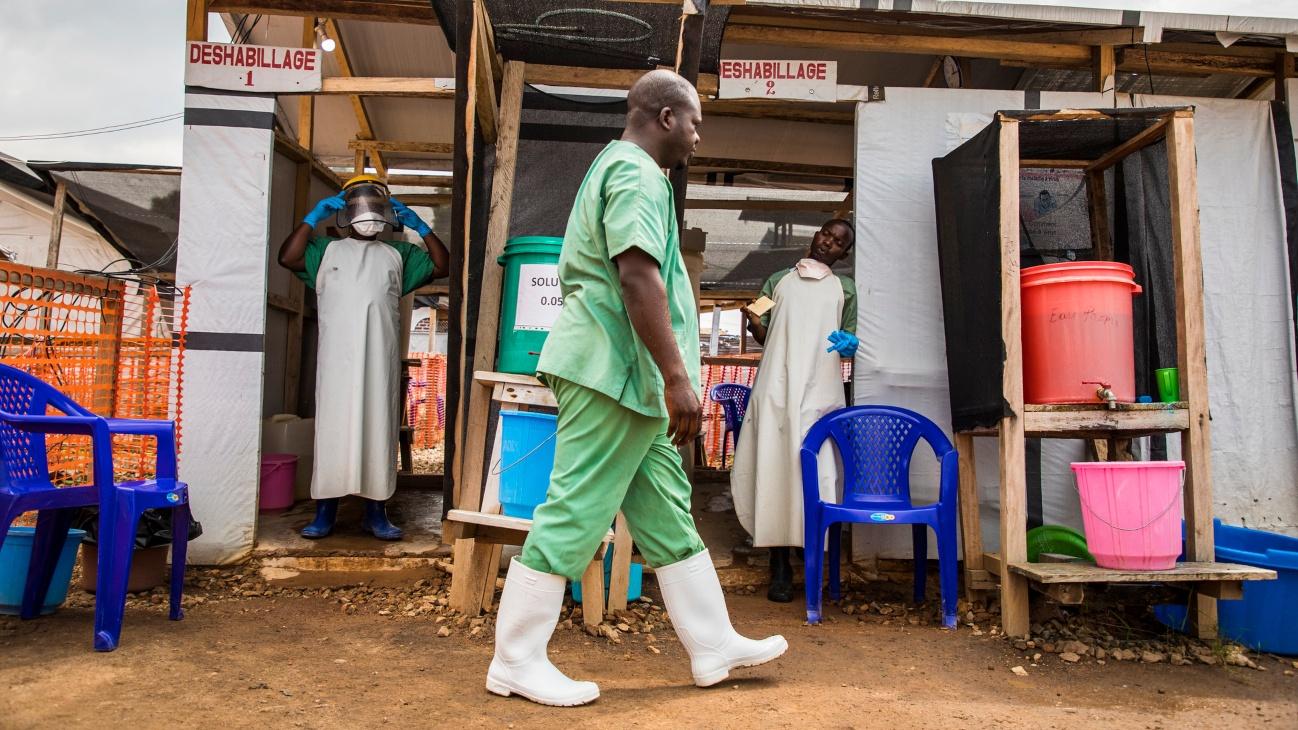The Ebola outbreak had claimed the lives of more 11,000 people and has devastated entire communities at both an economic and psychosocial level, mainly in Guinea, Liberia and Sierra Leone. There is a necessity to act upon the good intentions and circumstantial discourses, learn lessons and react, says Sandra Lhote-Fernandes.
The main lesson from this crisis has been the inability of health systems to deal with and control the spread of the epidemic. This inability brought to mind a well-known situation: the weakness of health systems in West Africa. Indeed, well before this crisis, access to health services, drinking water and safe sanitation facilities was insufficient, and the health statistics of the three countries among the most alarming in the world. The poorest populations, who were the most severely affected by the virus, had extremely limited access to healthcare.

This observation needs to be acted upon: react by going back on years of health systems being neglected, which have had serious consequences on the health condition of populations, and react by making long-term investments to build resilient health systems.
Strengthen health structures
The Ebola crisis has highlighted the precarious state of health structures in these three countries. To strengthen them, it is absolutely essential for national governments, with support from international donors, to invest in infrastructure that is accessible and suited to the needs of the population, particularly rural populations who are the most isolated from health structures, and guarantee an appropriate number of trained and motivated health workers, particularly non-clinical workers and community workers. It will be necessary to reach the most isolated populations and restore trust in the health system, which has suffered during the crisis.
The lack of effective vaccines and drugs largely exacerbated the outbreak. Lessons must be learned in order to make treatments available and affordable. As Margaret Chan pointed out, “A profit-driven [pharmaceutical] industry does not invest in products for markets that cannot pay”.[i] The existing research system does not serve the interests of public health well because it relies on market incentives that skew the R&D agenda in favor of products that maximize profits for pharmaceutical companies. These companies are granted monopolies on products through intellectual property (IP) rules which enable them to set prices for new ones. The “post-Ebola” period must serve to implement a binding research and development treaty, at the initiative of the United Nations, that promotes public and innovative financing for priority public health needs and unlinks funding from the end price of medical products.
Finally, the epidemic could have been avoided with an effective information and surveillance system. Information systems are essential public health structures that provide the data required for planning, the allocation of resources, as well as for the surveillance and evaluation of health policies and programs. They depend on data collection and, once again, it will involve restoring trust and improving cooperation with communities.
All these recommendations require political will, expertise, but especially financing. Where is it to be found?
This post was first published on the Ideas for Development blog.
Sandra Lhote-Fernandes is a Health Advocacy Officer at Oxfam France.
The views expressed in this post are those of the authors and in no way reflect those of the Africa at LSE blog or the London School of Economics and Political Science.





